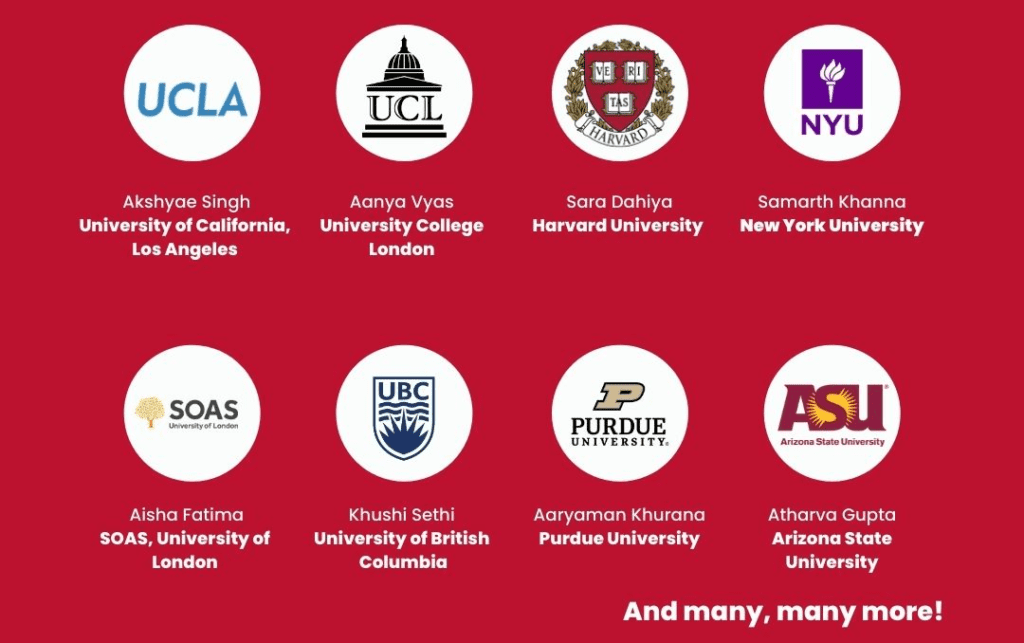blog | 5min Read
Published on May 10, 2022
How To Become A Writer & How (not) to be!

-Avanti Nayal,
Jamnabai Narsee School
So, how does one become a writer? Well, a single google search is enough to provide you with a plethora of answers to that question – however, rarely do people talk about how one must not become a writer. That is precisely what I want to throw light on through this blog post.
The beginning of the journey
Let me begin by telling you a little about myself – I am an average 18 year old girl who is a hopeless romantic at heart (classic writer vibes, right?). I am loquacious in the presence of those I trust, but I am extremely reserved at social gatherings. I am a glutton who loves devouring pasta almost every week. More importantly, I am a voracious reader who doesn’t think twice before burying her nose in a book even during the exam season. Although I’ve been fond of literature since I was a child, I did not try my hand at writing until a few years ago.

While sitting in my art class on a very fine morning in 2018, my art teacher asked me if I had ever written a poem. It was completely out of the blue, and I was pleasantly surprised (to say the least). I disagreed with her. She went on to say that I had the eyes of a writer- we laughed at it and continued with the task at hand. Later that night, I couldn’t stop thinking about what she had said. After a lot of deliberation, I decided to write my first piece- a short poem on the unpredictable nature of human admiration. This was followed by a piece on first love, and before I knew it, my diary was overflowing with poems that depicted a side of my personality that was shrouded in mystery until that point. My diary had turned into some sort of a haven. I deem myself to be a novice, but I have learnt a thing or two about the nuances of prolific writing.
Enjoy the journey whilst you have your eyes set on the goal
Rarely do I see people talk about the sheer excitement and joy that writers experience almost immediately after they think of an idea that they would want to work on. More often than not, we cannot wait to put our work out there. It is inexplicably difficult to sustain the same level of enthusiasm until the very end. Sometimes, the writing on paper is nothing like we imagine it to be. It takes patience and determination to put into words what our mind conjures up. It could take us anywhere between 30 minutes and an eternity to get done with a piece. The first golden rule of being a writer is simplistic but hard to live by- love the journey more than the destination; adore the process of writing more than the final product. You cannot be a writer by being a person who doesn’t understand the significance of patience. Perhaps, writing teaches us numerous life lessons too. Nothing gives a writer more pleasure than taking a step back and admiring their art, but it takes an unfathomable amount of time to get to that stage. Spoiler alert- it involves a ton of broken pencils, torn papers, incomplete works and of course, a lot of brainstorming.
The importance of vulnerability

The second golden rule of writing is the appreciation, acceptance and practice of being
vulnerable. We are accustomed to thinking of our struggles as unique and different from those that our mates experience, but I am here to tell you that the aforementioned notion is absurd and utterly false (I did sound like a professor there, didn’t I?). Our struggles are more alike than we would like to believe, and maybe, that is the crux of expressing yourself through writing – maybe, we all just want to be assured of the fact that we aren’t alone in our ordeal. You cannot become a writer without being vulnerable, introspective and supremely honest. Writing that’s (uncannily) profound usually comes straight from the deepest, most unexplored crevices of the author’s heart.
We all want to be understood, but rarely do we allow ourselves to show our bare self to the world. Writing gives you a glorious opportunity to do just that. Whether it is the notes that you scribble on your notes app at 3 am or the poems that you publish in a leading magazine, it all requires a great deal of vulnerability. Anne Frank’s diary wouldn’t be half as poignant if she wouldn’t have been completely honest about the most complex of things. Robert Frost’s poetry wouldn’t be half as popular if he hadn’t shared his heartfelt feelings with the world.
You can be a writer too!
Language is perhaps the greatest invention of mankind. Writers can wreck you and be your saving grace all at once. They can ruin the greatest of people and redeem the worst of men. A dying man’s last words, a person’s first love letter, the texts that a concerned mother sends to her child, they all hold more power than any weapon ever will- a sword can damage your physical body, but a writer can touch all realms of your existence. That is the power of language, and if channelised in the right way, our voice has the power to leave an indelible mark on those who listen.
There is a poet, an author or maybe even a blogger in all of us. We are a tapestry of emotions, thoughts, perspectives and experiences, and writing is the best possible way to immortalize it (whether it is for yourself or for the world). So, do yourself a favour and head to your favourite nook with a diary and a pen – give yourself the chance to embark on the journey of a lifetime.
PS- you don’t need to create a masterpiece just yet, just being yourself is enough. Welcome to our world, fellow writer – we will not disappoint you!
Psst.. want to explore a whole new world of poetry? Must you have heard of “Poetry in America”? The progam offers one of a kind poetry classes you should take pride in attending. Explore today!



















